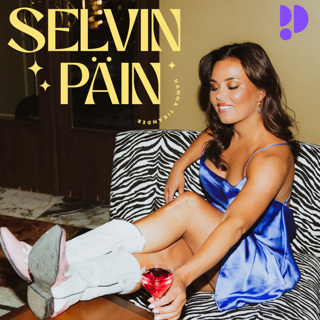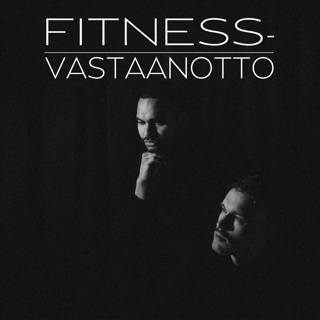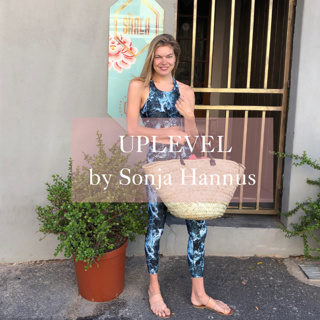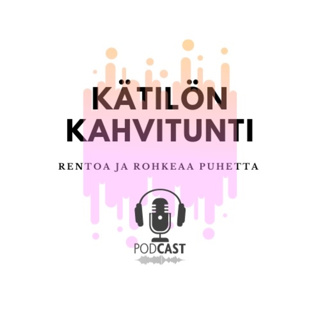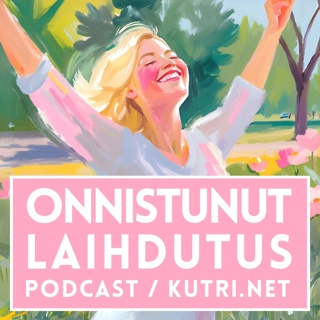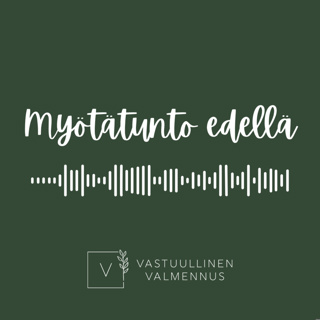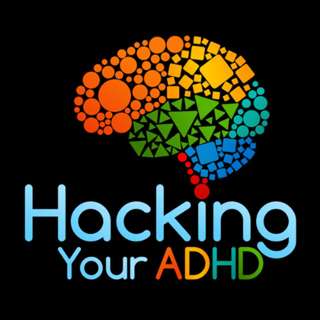
How to Think (Critically)
The ADHD brain has a strange relationship with thinking. One of my biggest gripes is that it often feels like I can't ever turn my brain off. No matter what I'm doing, I'm thinking about something. I could be washing dishes, but I'm thinking about what else I need to do before I go to bed. I could be walking to get the mail, and instead of wondering what's in the mailbox, I'm thinking about a conversation I had three years ago. Even when I'm trying to meditate, I'll often find myself thinking about what it means to be meditating. I'm not really sure that thinking about meditating while meditating is actually meditating - but hey, I'm still putting in the effort, it's called a practice for a reason. But just because our brains are whirring away doesn't mean that we're producing quality thoughts. Today we're going to take a dive into how we can better direct our brains. We'll be looking at why we should stop multitasking. The value of critical thinking and then explore ways that we can improve that thinking. Find the show note at HackingYourADHD.com/criticalthinking This Episode's Top Tips Stop trying to multitask. Multitasking reduces the efficiency that we can perform any task and prevents us from really thinking through our problems. Critical thinking is valuable because it helps us make hard decisions and it makes us harder to manipulate. Ask yourself more questions to improve your critical thinking skills. Always challenge your assumptions. Find ways to help facilitate your thinking time such mind mapping or taking a walk.
11 Touko 202013min

Cleaning House
I'd say I have a love-hate relationship with cleaning, but that implies that there is a part of me that loves cleaning. There isn't. I like having cleaned and having a clean home, but I seldom enjoy the actual cleaning part. ADHD tends to not make cleaning any easier. Time blindness makes me think most of the cleaning tasks I need to do are going to take forever. I have a natural propensity for clutter, and that clutter often fades into the background of what I notice - so I just stop seeing that stack of mail on my counter. Today we're going to be looking at why we should stop treating cleaning our house like a project. Ways that we can make consistent cleaning easier and also how we can get rid of some of the junk that has accumulated in our homes. Find the show note at HackingYourADHD.com/cleaninghouse This Episode's Top Tips Stop thinking of cleaning your house as a project - we've got to understand that cleaning is about the small tasks that we do consistently that is going to keep our house clean. Work on creating that routine of small tasks that you can do every day to improve the base level clean of your house - focus on starting small at first. Think about what you can do in the morning and what you can do right before you go to bed. Time your cleaning tasks so that you know how long they actually take to do - a lot of the tasks that we put off doing actually take way less time than we think they do. Use temptation bundling and listen to a podcast while cleaning so that you can stay motivated while tidying up. Make sure everything in your house has a place to live - it doesn't have to be an exact spot, but if you know where to put something then you won't waste mental energy figuring out where stuff needs to go when picking up. Spend some time decluttering your house by asking better questions about the objects you are thinking of getting rid of - if we can identify the reason we want to keep something it makes it easier to pare down what we have.
4 Touko 202019min

The Science of Fidgets
My desk usually has a least a few fidget toys on top of it. I say usually only because my children sneak into my office and steal them. But the rest of the time I have a couple infinity cubes, a tangle and a piece of sea glass I use as a worry stone. I love having them to play with as I think through sentences while I'm writing and also as something to keep my hands busy while I'm reading. Today we're going to talk about the rise of fidgets in over the last few years and then dive into how they are supposed to work. We'll also be discussing what makes a good fidget. Show note at HackingYourADHD.com/fidgetscience Today's Top Tips There are a lot of sketchy claims about fidget toys. Be wary of marketing claims, but don't throw the baby out with the bathwater - figure out which fidgets work best for you. Fidgets work by helping us manage our attention and focus. It can be hard for us to direct our attention when we're either over or under-stimulated. The best fidgets are things that we can do with our hands without looking at them - we don't want to be drawing too much of our attention to use them, just enough to help drown out the other outside stimuli around us.
20 Huhti 202013min

Best-Laid Plans and COVID-19
Trying to plan in a pandemic has been... well really what's been a problem is all the plans that I made before the lockdown. Every week I look through my calendar and have canceled events and plans that just aren't going to happen. I mean this was the first Easter I didn't have to pretend to be sick during to avoid going over to the in-laws, but that's a pretty weak silver lining. We've got a lot going on so planning is more important than ever - I mean going to the grocery store takes a lot more forethought than it used to. But planning also seems harder than ever before as well, so today we're going to be looking at what to do when plans go awry and how to adjust our long-term planning. Find the show note for this episode at HackingYourADHD.com/BestLaidPlans This Episode's Top Tips No one really wanted to hear me read poetry. When our plans go wrong it can be frustrating and debilitating. We can mitigate some of this by thinking through what can go wrong with our plans and coming up with contingencies. Right now a lot of our long-term plans are disarray - while it is hard to plan for the future because when we are faced with uncertainty, we can still look at our underlying goals and base our planning around them. Give yourself a break - it's okay to do less. While it is still a good idea to plan our days, we can also just plan on doing less.
14 Huhti 202016min

When Good Science Goes Bad
Going online has its perks - we've got a wealth of information at our fingertips - but with so much information it can be hard to find the truth. Often we can't find the signal for the noise because well, it is just really noisy. And by noisy, I mean there is a lot of bad information out there. In today's episode, we're going to be looking specifically at science journalism, but really most of what we're going to be talking about can be applied to everything that we read online. We want to be getting the best information and so we've got to be cautious about our sources. So we're going to be looking at ways that research can be manipulated to support a flimsy claim, why we've got to go beyond reading the headlines and what to watch out for when we are reading those articles. Find Today's Show Notes at HackingYourADHD.com/badscience Today's Top Tips While most scientist aren't trying to create bad science, lack of funding and time can make many studies suspect. To help validate claims, read into the study methodology and see what other research supports those claims. Make sure that you are reading beyond just headlines. Many over zealous reporters will embellish headlines to garner more clicks. Watch for words like "proved" about science. Science doesn't prove anything, it just creates evidence that supports a claim or refutes it. Be skeptical of claims that seem to good to be true, they usually are.
6 Huhti 202014min

Controlling What You Can When Everything Feels Out of Control
I hope everyone is staying home and staying safe. I know that everyone is going through a hard time right now and ADHD isn't making it any easier. So today we're going to be talking about what we can do to try and regain some of that control you may feel you have lost in your life. We'll be talking about staying in contact with friends, setting up routines and using accountability. We'll also be talking about ways to get in a little more self-care. For show notes go to HackingYourADHD.com/ControllingWhatYouCan Today's Top Tips Make sure you're scheduling time to be social - figure out ways to stay in contact while you are apart. Create a routine to follow and use accountability to help you follow through with your intentions. Prioritize self-care somewhere in your routine. Give yourself some slack.
31 Maalis 202011min

Working With Your ADHD (Updated and Rebroadcast)
This week we're going to be hitting Working With Your ADHD. One of my biggest struggles with ADHD often comes from my belief that if I just tried harder I'd be able to overcome anything that my ADHD was throwing at me, but surprise surprise that just isn't the case. In today's episode, we're going to be looking at why we don't want to just keep trying to do the same things as neurotypicals, why we struggle so much with the idea of trying harder and also some of the strategies that are going to support us the best. Find the show notes at HackingYourADHD.com/WorkingWith Today's Top Tips 1. Pretending that we're neurotypical is exhausting and will lead us to use the wrong strategies for our brains. 2. We shouldn't focus on just trying harder. It's okay for us to just do less, especially when we are staying focus on what matters most. 3. The best strategies for working with your ADHD starts with accepting your ADHD. Make time to educate yourself about what's really happening in your ADHD brain and get involved with the ADHD community.
16 Maalis 202012min







